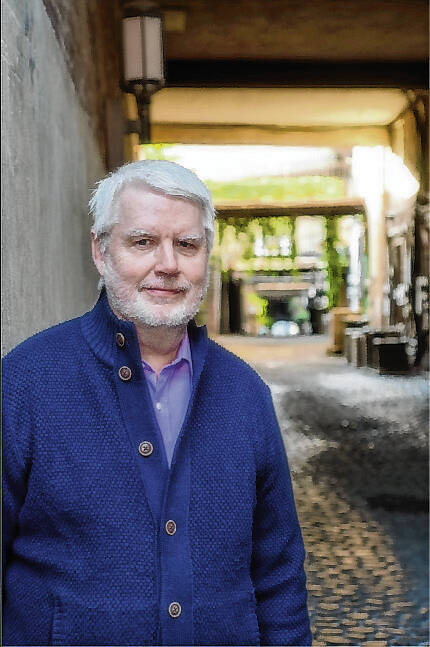Although I’d been invited, once I retired as a professor, to march with my colleagues at Franklin College’s commencement, I hadn’t done so for the past few years because of COVID-19. But this year, I robed up and joined the faculty, staff, and students for this yearly celebration.
The experience was surreal because I knew less than half the faculty and only a few students, who’d all come to Franklin College after I retired. Perhaps I shouldn’t have been surprised that the day brought back a flood of memories going back over forty years to the first Franklin College commencement that I attended.
One of the memories that returned was a question my mother asked me over twenty-five years ago. Her question was, “Why have you stayed at Franklin instead of moving on to other colleges or universities?”
I thought about why my mother asked the question before I attempted to answer it. Perhaps she remembered my wife and me declaring, when we came to Franklin in the summer of 1978, that we intended to stay for no more than three years. Or perhaps she was simply reflecting the cultural assumption that moving from a smaller to a larger institution was proof of success.
Another option was that my mother’s question contained the unspoken fear that our staying at the same small college would lead to stagnation. If so, my answer must have surprised her. I shared that if I’d moved from one college to another over the years, I would likely have just repeated what I had done at the previous institutions. My experience at Franklin College was that I did grow tired every seven or eight years of how I was teaching my classes. But the great gift of the small college, at least this small college, was that every time I proposed experimenting with a new approach, the powers-that-be said, “Go for it.”
Consequently, in my four decades teaching at Franklin College, I changed my approach at least five or six times. The professor I was when I retired was so different from the person I’d been when I first arrived. I owe this to a trait common to many small colleges, and that trait is agility, the capacity to change and grow.
Students also find that small colleges like Franklin foster agility. Recently, a graduate of Franklin College from back in the late ’60s shared his experience. He’d come to Franklin from the East Coast and was interested in history. In an upper-division history class, he showed up the first day to find that he was one of only four students. After the professor described the requirements of the class, this student returned the next day to find that the other three students had dropped the course.
The professor looked at the student and said words that would likely never be heard at a large university —“I’m happy to teach you if you’re still interested.” Through that one-on-one class, the professor gained a sense of this student’s interests and opened doors for that student to have a life-changing internship in Washington, D.C. That graduate is now an internationally-respected lawyer with offices in downtown Indianapolis.
The reality is that small institutions are often not just more agile than larger ones, but more personal. That’s true not just of colleges, but small religious communities as well as small businesses. If you want to be invisible, consider becoming part of a massive organization. But if you want to hear those words “Go for it” as you face big opportunities, don’t overlook the small.
David Carlson of Franklin is a professor emeritus of philosophy and religion. Send comments to [email protected].





